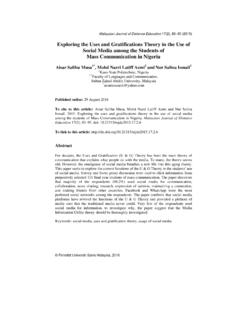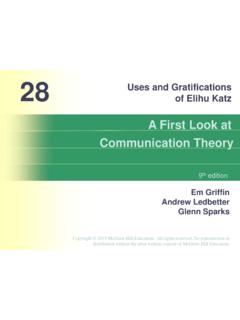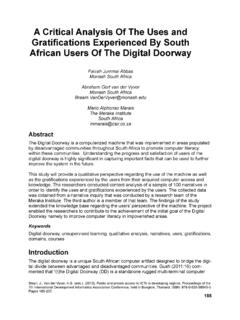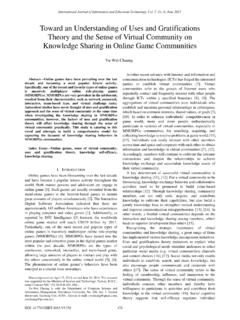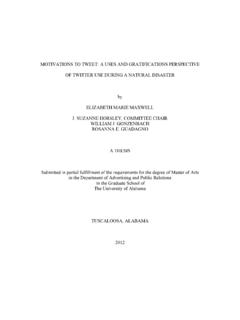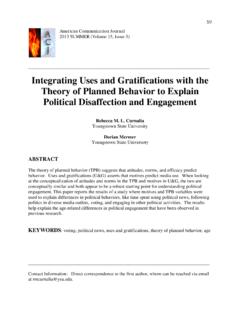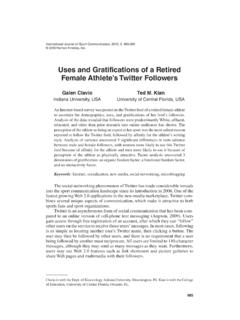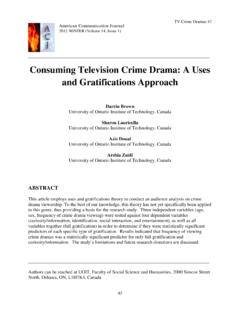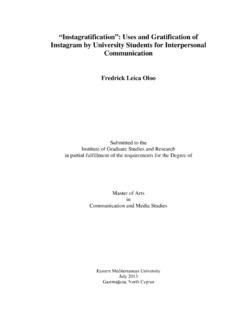Transcription of Uses and Gratifications - Gloria Boone
1 uses and Gratifications Katz, Blumler, and Gurevitch (1974) Focus uses and Gratifications theory (UGT) argues that people actively seek out specific media and specific content to obtain specific Gratifications or results. people as active Instead of asking, "What do media do to people?" UGT researchers ask, "What do people do with media?" Assumptions U & G is an extension of needs and motivation theory developed by Abraham Maslow Schramm's audience members weigh the level of reward (gratification) they expect from a given medium or message against the effort they must make to secure that reward: expectation of reward/effort required.
2 Herzog (1944) why women were attracted to radio soap operas, Herzog identified three major types of Gratifications : experiencing emotional release, engaging in wishful thinking, and obtaining advice. TV : Rubin (1981) To pass time for companionship excitement escape enjoyment social interaction relaxation information learn about specific with or disconnect from others. Media use categories identified by individuals are needs associated with acquiring information or knowledge, pleasure, status, strengthening relationships, and et al.
3 (1972) classification of audience needs and Gratifications . i. Diversion, or an escape from daily routines or daily problems ii. A personal relationship whereby people substitute the media for companionship. iii. Personal identity/individual psychology, or ways the media are used by an individual to reinforce her/his values. iv. Surveillance, or information about how media will help an individual accomplish (1979) activity associated with media consumption. Utility- people listen to the car radio to find out about traffic or read fashion magazines to keep abreast of styles Intentionality- prior motivations determine their consumption of media content so when people want to be entertained.
4 They tune in to an HBO comedy special Selectivity- reflect their existing interests and preference - a person who likes jazz will listen to a radio jazz program Imperviousness to influence -construct their own meaning or often actively avoid certain types of media influence such as advertising campaigns

